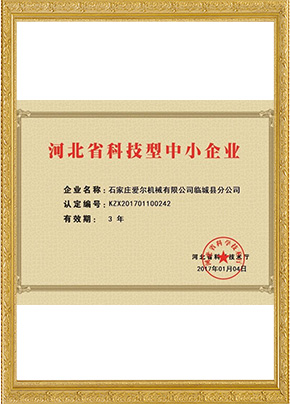Nov . 28, 2024 06:29 Back to list
Sump Pump Manufacturing Solutions for Industrial Applications and Water Management Systems
The Role of Industrial Sump Pumps in Modern Manufacturing A Deep Dive into Factory Solutions
In the fast-paced world of manufacturing, maintaining operational efficiency is paramount. One of the unsung heroes of this effort is the industrial sump pump—a vital component in many production facilities. This article will explore the significance of these pumps, their functionalities, and how factories can optimize their use to enhance productivity.
What is an Industrial Sump Pump?
An industrial sump pump is a specialized device used to remove accumulated water and other fluids from industrial sites, particularly in basements, excavations, or large containers known as sumps. By automatically collecting and discharging unwanted fluids, these pumps play a critical role in preventing water damage, ensuring worker safety, and maintaining optimal working conditions.
The Importance of Industrial Sump Pumps
Water intrusion can be a significant threat to manufacturing operations. It can damage equipment, compromise structural integrity, and create hazardous work environments. Industrial sump pumps mitigate these risks by providing continuous drainage, thereby ensuring that floors remain dry and safe for employees. Additionally, many manufacturing processes involve the use of fluids—whether for cooling machinery or as part of production. Thus, managing these liquids effectively is crucial for maintaining a smooth workflow.
Types of Industrial Sump Pumps
There are several different types of industrial sump pumps, each designed for specific applications
1. Submersible Pumps These pumps are designed to be submerged in the fluid they are pumping. They are highly effective in removing water from deep sumps and are commonly used in construction sites or areas prone to flooding.
2. Pedestal Pumps Unlike submersible pumps, pedestal pumps are positioned above the sump. They are ideal for situations where the sump is not excessively deep and allow for easier maintenance.
3. Diaphragm Pumps This type of pump is particularly effective for transferring highly viscous fluids and slurries. Their design minimizes the risk of clogging, making them invaluable in manufacturing processes that handle thick liquids.
4. Vacuum Pumps Often used in conjunction with other pumping systems, vacuum pumps remove air and facilitate the movement of liquids from one place to another. They are particularly useful in applications that require precise liquid transfer.
industrial sump pump factory

Factors to Consider When Choosing a Sump Pump
Selecting the right industrial sump pump for a factory involves considering several key factors
- Flow Rate The pump must accommodate the expected volume of fluid. It’s essential to choose a pump with a suitable flow rate to prevent overflow and ensure efficient operation.
- Head Height This refers to how high the pump can lift the fluid. Different applications may require varying head heights, so understanding the specific needs of your site is crucial.
- Fluid Characteristics The type of fluid being pumped is another critical consideration. For example, corrosive fluids may require pumps made from specific materials to avoid damage and ensure longevity.
- Energy Efficiency In an era where sustainability is increasingly important, selecting energy-efficient pumps can lead to significant cost savings and reduced environmental impact.
Maintenance and Best Practices
Regular maintenance of industrial sump pumps is essential to ensure their longevity and performance. This includes routine inspections, cleaning, and testing to ensure that they function properly when needed. Implementing a preventive maintenance schedule can help identify potential issues before they escalate into costly repairs or downtime.
Furthermore, training staff on the proper operation of sump pumps ensures that everyone understands their role in maintaining a safe and efficient working environment. Establishing clear protocols for emergency situations—such as heavy rainfall or equipment failure—can also help factories respond effectively.
Conclusion
Industrial sump pumps are indispensable tools in modern manufacturing facilities. By ensuring effective fluid management, they protect infrastructure, promote safety, and contribute to operational efficiency. As technology advances, the design and functionality of these pumps will continue to evolve, offering even greater capabilities for factories. Investing in the right sump pump technology, coupled with good maintenance practices, will empower manufacturers to thrive in today's competitive landscape.
-
High Quality Slurry Pump Seals Reliable China Suppliers & Manufacturers
NewsJun.24,2025
-
High Quality Portable Submersible Slurry Pump Supplier & Manufacturer from China
NewsJun.10,2025
-
Slurry Pump Parts Manufacturer – High Quality Rubber Spare Parts from China
NewsJun.10,2025
-
High Quality 1/3 HP Submersible Sump Pump with Vertical - Reliable Supplier & Factory Price
NewsJun.10,2025
-
High-Efficiency Centrifugal Slurry Pumps India
NewsJun.10,2025
-
High Quality Warman Centrifugal Slurry Pump Suppliers & Factory
NewsJun.10,2025
